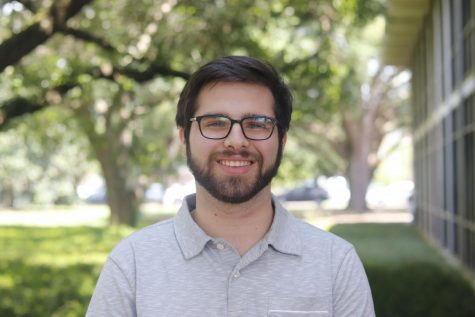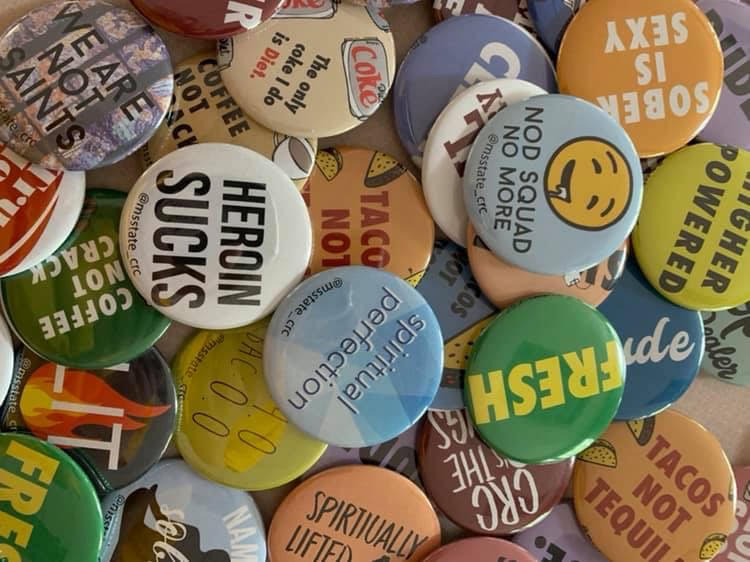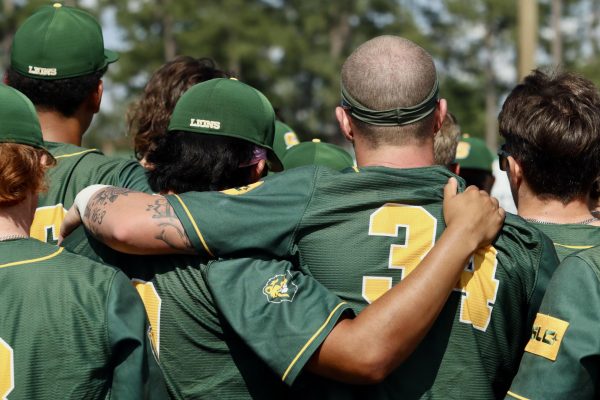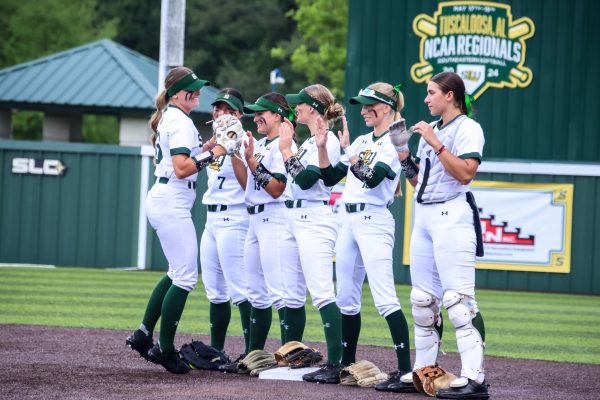Lion Up Recovery becomes state’s first collegiate addiction recovery program
Dylan Meche/The Lion’s Roar
Lion Up Recovery has officially launched this semester. The program is the first collegiate recovery program in the state of Louisiana.
According to the Addiction Center, college students are twice as likely to struggle with addiction compared to the rest of the nation.
In order to combat this, the university has created the Lion Up Collegiate Recovery Program. The program aims to create a safe environment for students who are struggling with any sort of addiction so that they are able to pursue their academic goals without their addiction getting in the way. The program is the first of its kind in the state of Louisiana.
Participants are required to attend weekly seminar classes, “Southeastern Recovery Nights,” that are held monthly, attend at least two recovery meetings per week and meet with an academic advisor each semester.
Madison Evans, interim coordinator of the collegiate recovery program, explained how the new program is structured.
“This program is for students who identify as being in recovery from a substance abuse disorder or a processing addiction,” stated Evans. “So, that includes addictions to drug and alcohol, but we also support students who are struggling with eating disorders, gambling addiction and pornography addiction. We assist with all of these I just mentioned and more.”
All students who are in recovery from any type of addiction are eligible to apply to this program.
“This program is catered towards students who are struggling with any kind of addiction,” said Evans. “We offer all sorts of things for our students. The main things are weekly seminars, which are not for credit classes for one hour a week and academic advising from a professional counselor. We also have a recovery space on North Campus which creates a place for students in recovery to congregate. Recovering from an addiction is like learning to walk again. That’s why it is important to have these things such as seminar classes.”
The recovery program also incorporates several new and previously introduced events outside of the program designed to help students struggling with addiction.
“We have resources like support groups that are open to all students, regardless of if they are in the program,” explained Evans. “We also have events like Sober Tailgating which is a great way for students in recovery to get to meet others in a similar situation. You might see some collegiate recovery people at these events of course. Now that this program exists, we can offer more of these services to our students.”
The program will also allow certain students to be eligible for scholarships if they spent at least six months in recovery, fill out an application and met other criteria determined by the program directors.
“The thought behind this scholarship is that a lot of students that are in recovery may have used all their resources to go to treatment or their addiction,” stated Evans. “Addiction is an expensive disease to treat, and we are not quite there yet with our health care in terms of providing an affordable option. With the scholarship, we hope to give students a second chance and a fulfilling college experience.”
The university adopted the program after students who suffered with addiction reported that they found it difficult to seek help on campus.
“Before this program was implemented, Southeastern did not really have anything for students who dealt with addictions,” said Evans. “That made it very difficult for students. There are about 150 different programs around the nation and until now, the state of Louisiana did not have one. We got a grant and then I was appointed as the coordinator.”
Evans explained that part of the benefits of this program so far is that students and faculty are now more aware of those struggling with addiction. She also expressed that anyone who is currently struggling now or knows someone who might be struggling is not alone.
“There is support for you, no matter where you are and what you are struggling with,” shared Evans. “There are so many choices and resources here on campus. Start talking about it with us and you will be pointed in the right direction.”
For more information regarding Lion Up Recovery, go to southeastern.edu/recovery or visit the University Counseling Center.
Your donation will support The Lion's Roar student journalists at Southeastern Louisiana University.
In addition, your contribution will allow us to cover our annual website hosting costs.
No gift is too small.

Dylan Meche is a Political Science major from Baton Rouge and serves as Opinions Editor. He has been a reporter for The Lion's Roar since August of 2019....







Goodwins • Oct 10, 2019 at 3:16 pm
Another helpful resource for addiction is the book Power Over Pornography. Although geared to help those with a porn viewing habit, its methods work well for all addictions or unwanted habits. Its use of Mindfulness, Cognitive Behavior Therapy and Acceptance and Commitment Therapy works well. I highly recommend it.